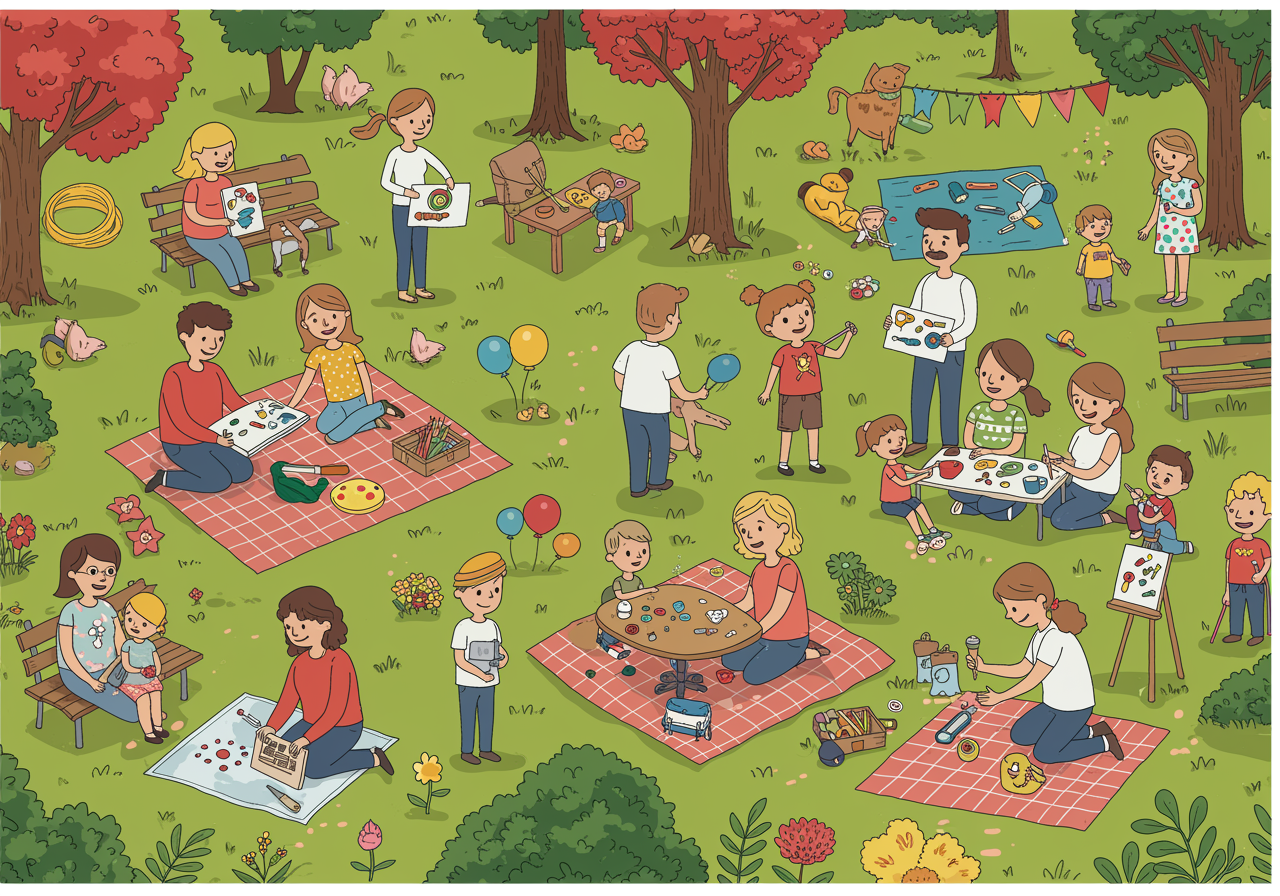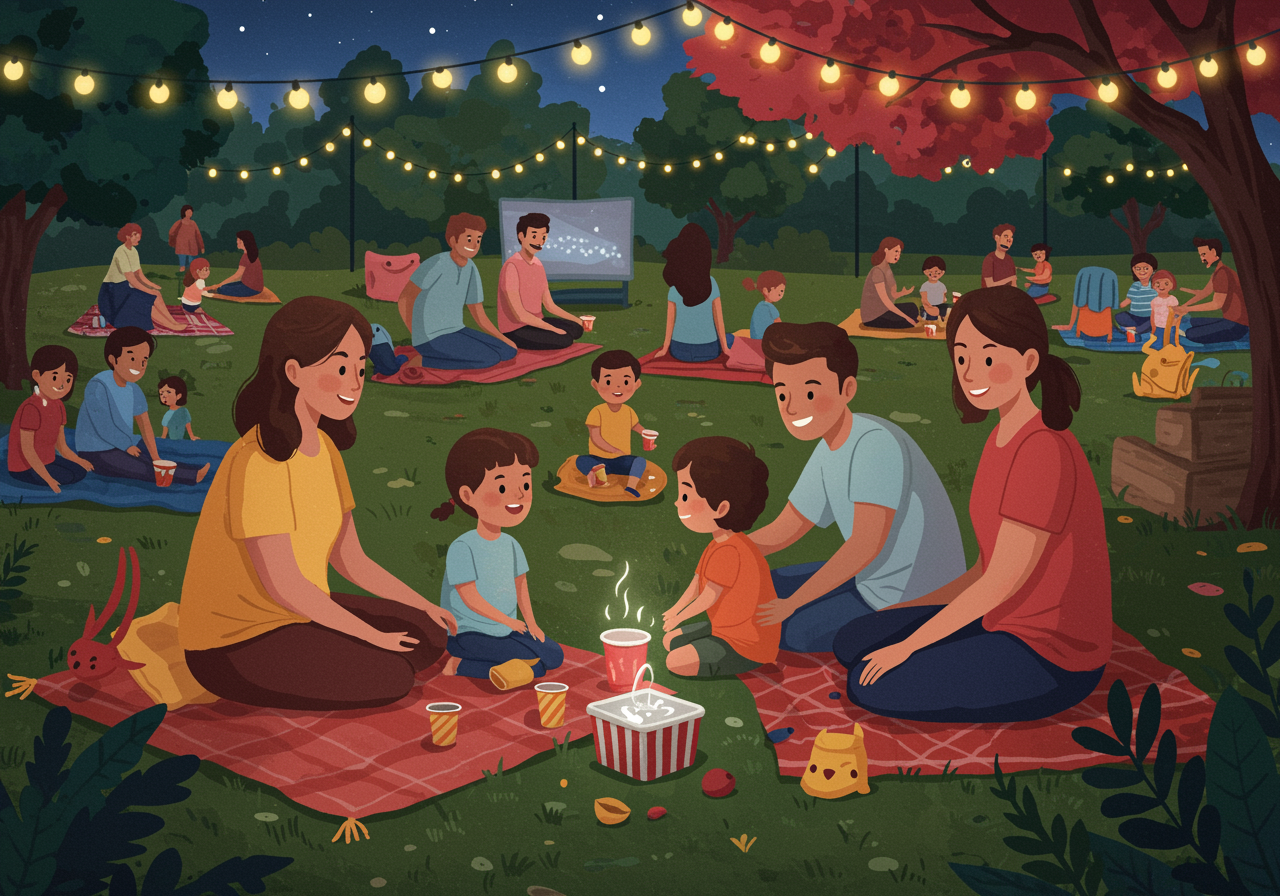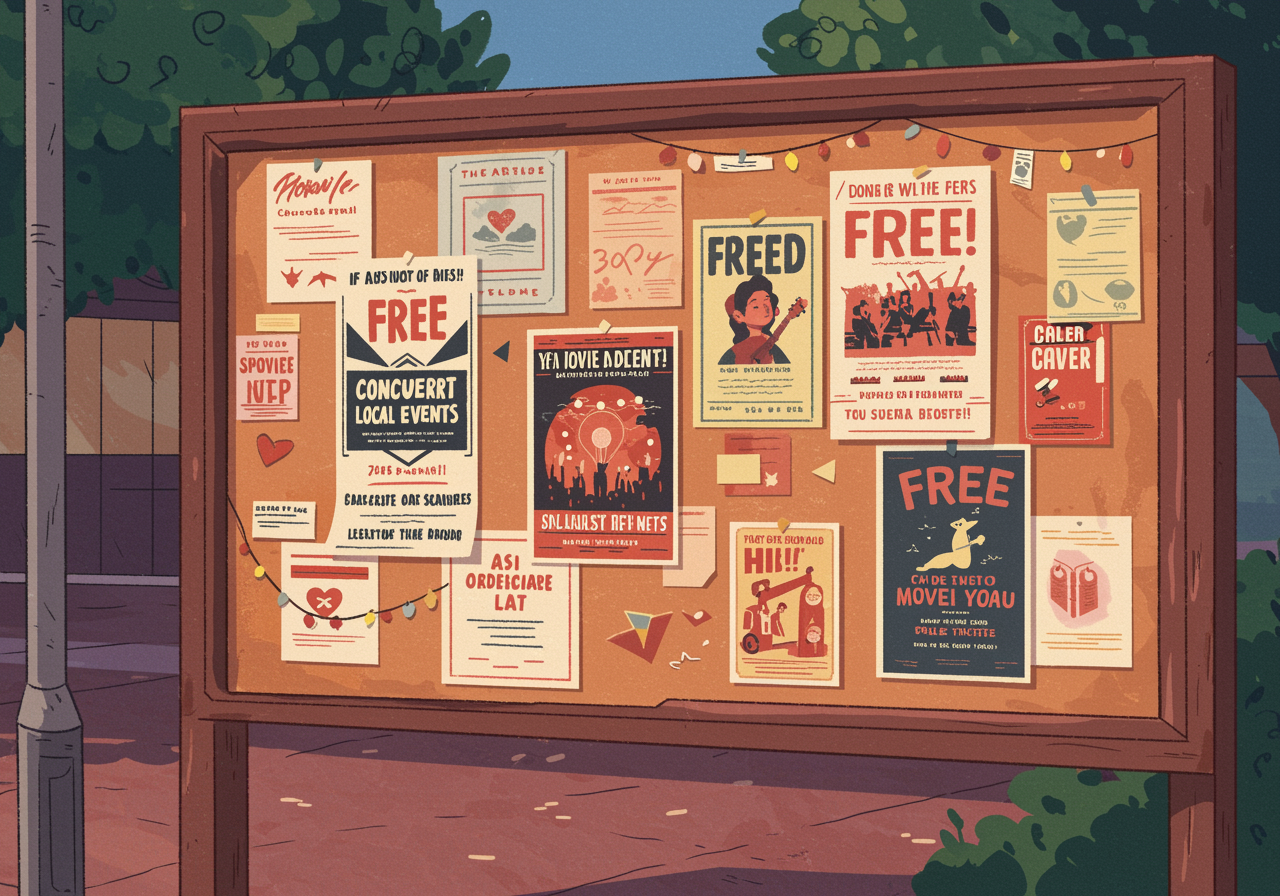Free Fun = Strong Communities: How Zero-Cost Entertainment Builds Better Connections
Discover why the best family memories often cost nothing at all
Explore how free entertainment creates stronger families and tighter communities while building lifelong memories without breaking the bank.
Overview
Think about your favorite family memories – chances are, many didn't cost a dime! Free entertainment does something amazing: it removes barriers so everyone can join in, regardless of their family's budget. When families explore free activities together, they often discover new interests, meet neighbors they've never talked to, and create traditions that last for generations. Plus, without the pressure of 'getting your money's worth,' everyone can relax and just enjoy being together.

Understand in 30 Seconds
Get up to speed quickly
- Money Stress = Less Fun: When families don't worry about ticket prices, they can focus on actually enjoying each other's company instead of calculating costs.
- Everyone's Invited: Free events bring together people from all backgrounds and income levels, creating diverse communities where kids meet friends they might never encounter otherwise.
- Creativity Blooms: Without expensive equipment or entry fees, families get creative with simple activities like hiking, stargazing, or making art with nature.
- Neighbors Become Friends: Community events like festivals or library programs help families connect with people who live nearby, building stronger, safer neighborhoods.
Real Life Scenario
Situations you can relate to
Imagine your family decides to check out a free outdoor movie night at the local park instead of going to the theater. You grab blankets, pack some snacks, and arrive to find hundreds of other families spread across the grass. Your younger sibling starts playing with kids from the next blanket over, while you end up talking to a teen who goes to a different school but loves the same music you do. Your parents strike up a conversation with neighbors you've seen but never really met. By the end of the night, you've made new friends, your parents have planned a neighborhood barbecue, and your family has discovered a new monthly tradition. Would this same kind of community connection have happened in a dark movie theater where talking isn't allowed?

Role Play
Spark a conversation with “what if” scenarios
What if your family could only do free activities for a whole month?
- Role play: Brainstorm a list together of free activities in your area, then plan a week of adventures using only those options. Discuss what you discovered and how it felt different from paid entertainment.
What if you were the mayor and had to bring your community together without spending money?
- Role play: Take turns being the mayor and proposing free community events. The 'citizens' (rest of the family) vote on which ideas would work best and why.
What if a new family moved to your neighborhood and had very little money for entertainment?
- Role play: Role-play being their welcoming committee, showing them all the free fun your community offers and explaining how these activities help people feel included.
FAQs
Frequently asked questions people want to know
Doesn't free entertainment mean lower quality experiences?
Not at all! Many free activities like hiking, festivals, and library programs are high-quality experiences funded by taxes or volunteers who care about their community.
How does free entertainment really help families connect?
Without the pressure of expensive tickets, families can relax, try new things without risk, and focus on spending time together rather than 'getting their money's worth.'
Can free entertainment actually build community?
Absolutely! Free events bring together people from different backgrounds who might never interact otherwise, creating friendships and support networks that strengthen neighborhoods.
Examples in the Wild
See how this works day to day
- New York City's Central Park SummerStage offers free concerts that have attracted millions of families over 35 years, creating lasting community traditions. (Central Park Conservancy)
- Studies show that neighborhoods with free recreational facilities like parks and community centers have stronger social connections and lower crime rates. (American Journal of Community Psychology)
- The Little Free Library movement has placed over 150,000 book-sharing boxes worldwide, creating micro-communities around shared reading experiences. (Little Free Library Organization)
- Research from Harvard shows that families who participate in free community activities report higher levels of life satisfaction and social support. (Harvard School of Public Health)
In Summary
What you should know before you start
- Free entertainment removes financial barriers, allowing all families to participate regardless of their budget
- Community events create opportunities for neighbors to meet and build lasting friendships
- Families can explore new interests and hobbies without the pressure of expensive commitments
- Diverse, inclusive activities strengthen entire neighborhoods and reduce social isolation
Pro-tip for Parents
You got this!
If your teen seems hesitant about free community activities because they think 'free means boring,' start with something that connects to their existing interests – like an outdoor movie screening of a popular film or a free skateboarding workshop at the community center. Once they experience how fun and social these events can be, they'll be more open to trying other free activities. The key is showing them that the value comes from the experience and connections, not the price tag.

Keep an Eye Out For
Find these examples in everyday life
- Community event calendars in local newspapers or city websites announcing free festivals, concerts, or workshops
- New families moving into your neighborhood who might enjoy learning about free local activities
- Local businesses or organizations sponsoring free family-friendly events as community outreach
Explore Beyond
Look up these related research topics
- How does social media influence what teens consider 'valuable' entertainment?
- What role do public spaces like parks and libraries play in building democracy?
- How do different cultures around the world use free community gatherings to stay connected?